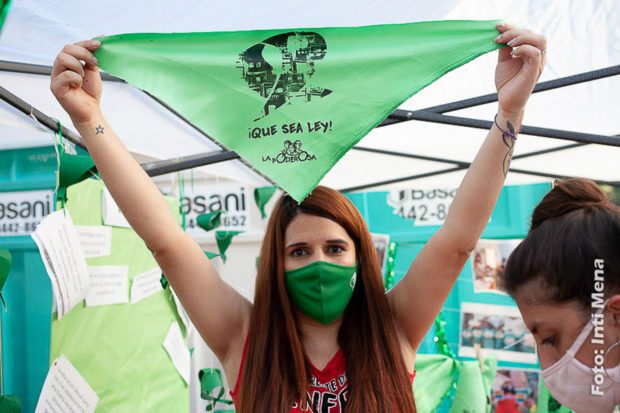
In May 2015, in Argentina, 14-year-old Chiara Paez, pregnant, was assassinated by her boyfriend, 17-year-old Manuel Ignacio Mansilla Gallegos. He killed her by blows and buried her body in his backyard. Because of this femicide, a group of journalists convened a protest on June 3 in Buenos Aires. Half a million people participated under the #niunamenos (Not Another One).
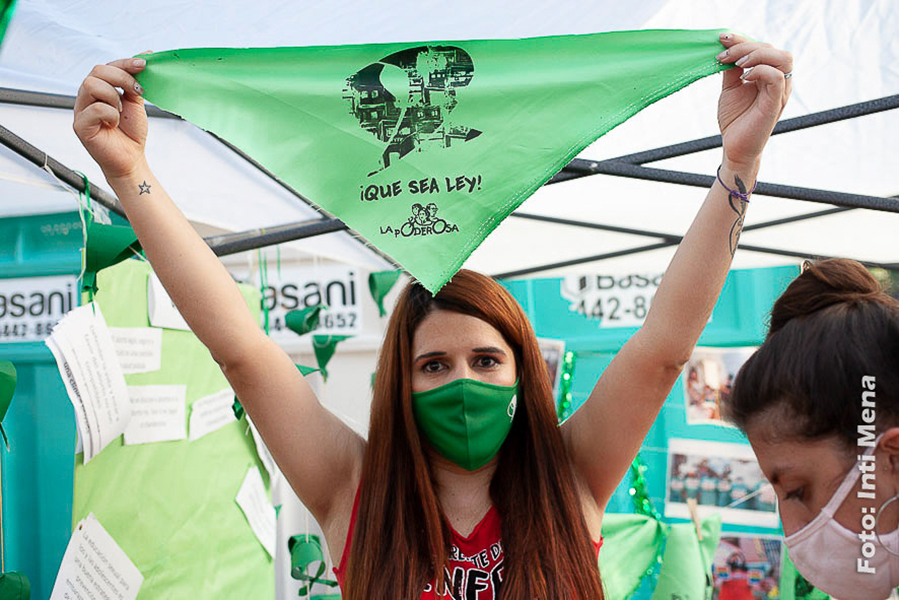
The killer was sentenced to life in prison, but recently a court of the state of Santa Fe (where the femicide happened) reversed the conviction because Gallegos was a minor at the time of the crime. Now his sentence is in the hands of a juvenile court, and speculation is that he will get no more than 15 years in jail. The court didn’t notify the family of Paez of its decision, which angered many people and sparked complaints.
The “Ni Una Menos” (Not Another One) movement was born seven years ago. It opened room for expression and the exchange of opinions about feminism, which finally could take a central place in the public debate and the politics of Argentine society—and beyond. Even the doors of the government opened up—although not totally—to feminism. It was a period for consolidation of decades-long struggles.
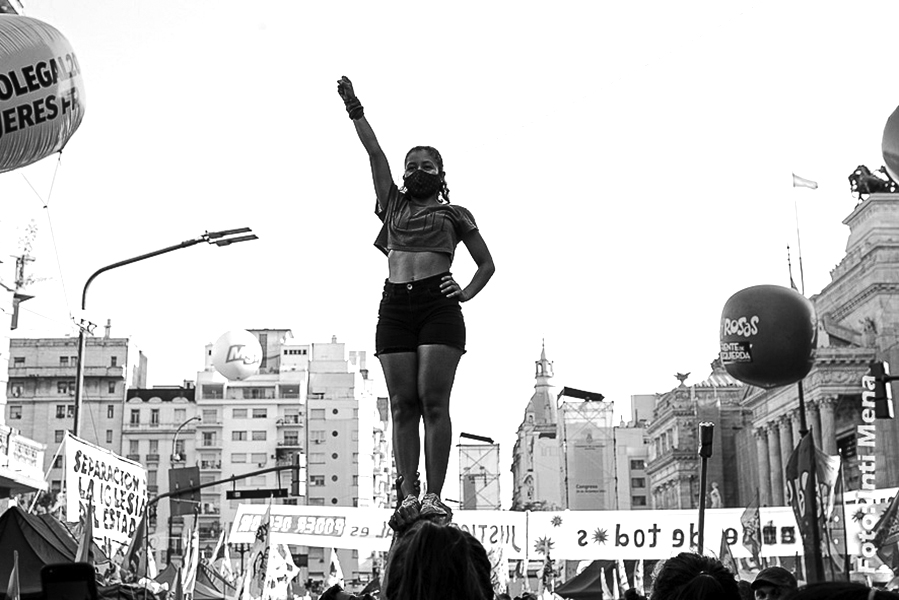
There are rumors of feminist judicial reform, a daunting step to those “feminism-phobics” who get panic attacks thinking Argentina will become a country ruled by Amazons. There were 17 years of campaigning for abortion rights—the movement started in 2005—which was inter-feminist, interdisciplinary and integrally cooperative, resulting in the passage of a bill by Congress on Dec. 30, 2020.
Although the attacks on women’s rights are advancing in the United States, in other countries organized women are achieving significant policy victories. That is the case in Argentina, where 2020 legislation made it legal for women to have an abortion until week 14 of a pregnancy. The law went into force on Jan. 24, 2021. Argentina has allowed therapeutic abortion and abortion in cases of rape since 1921.
A 2005 study by the Argentine Health Department found that there were 370,000–520,000 illegal abortions per year in a country of 45 million inhabitants. According to Dr. Adolfo Rubinstein, the secretary of public health in 2017 and 2018, illegal abortion is the leading cause of female mortality.
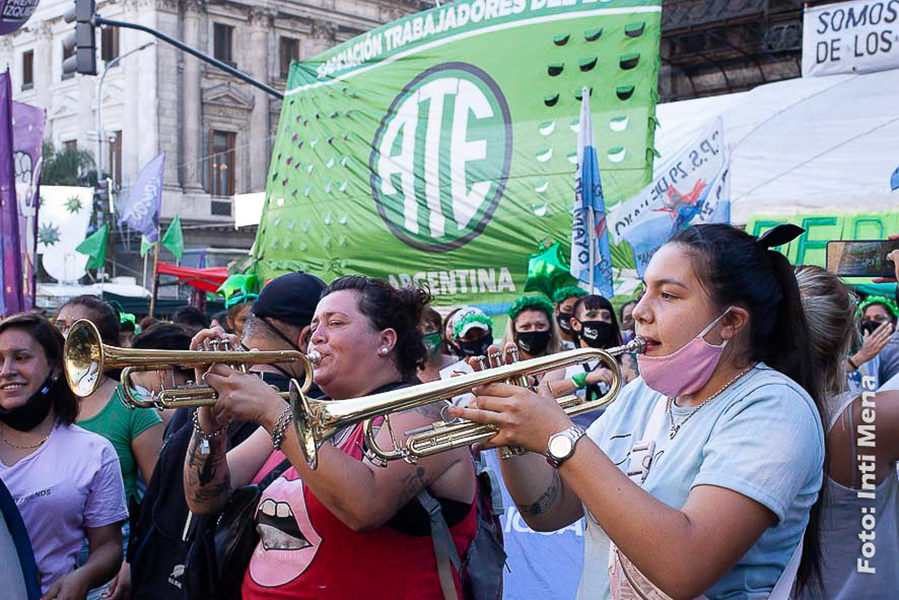
In 2018, a bill legalizing abortion was introduced in Argentina’s Senate but failed to pass. The struggle was not won at that time, but it was a symbolic knockout. All of society talked about the issue, at home, at the supermarket and even at schools, where students brought in their opinions and concerns.
Some believe that the conservative administration of Mauricio Macri (2015–2019) allowed the introduction of the bill thinking Congress wouldn’t pass it and that people would forget about it. He didn’t anticipate the consequences of the public debate.
It is difficult to make a vertical analysis of feminism because feminism is transversal. Feminists are all over, on all fronts, defending the good quality of life that women deserve.
Argentine feminists are anti-capitalists and anti-extractive, opposing the exploitation and impoverishment of the earth. They are organized to defend and take care of themselves while at the same time helping humankind. Today, feminism in Latin America is a tool to continue the struggle for emancipation and true independence.
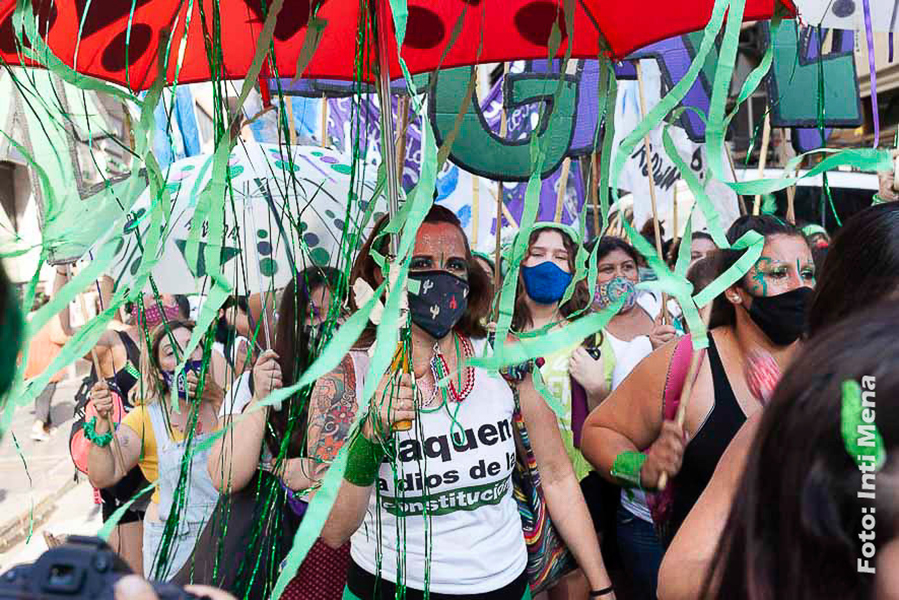
Feminism questions the role assigned to women at all levels: social, economic, legal, domestic, cultural, political and educational. Sorority and solidarity unite with the scope of achieving a better world, without inequalities and without productive systems poisoning the earth.
“Feminist marches are the best,” noted an Argentine feminist.”There is so much harmonic diversity. There is no violence. We dance, we sing, we play music. We love these encounters, we dress up, we face-paint ourselves, and we move forward despite the cruelty we face.”
Photos by Inte Mena Navarro
